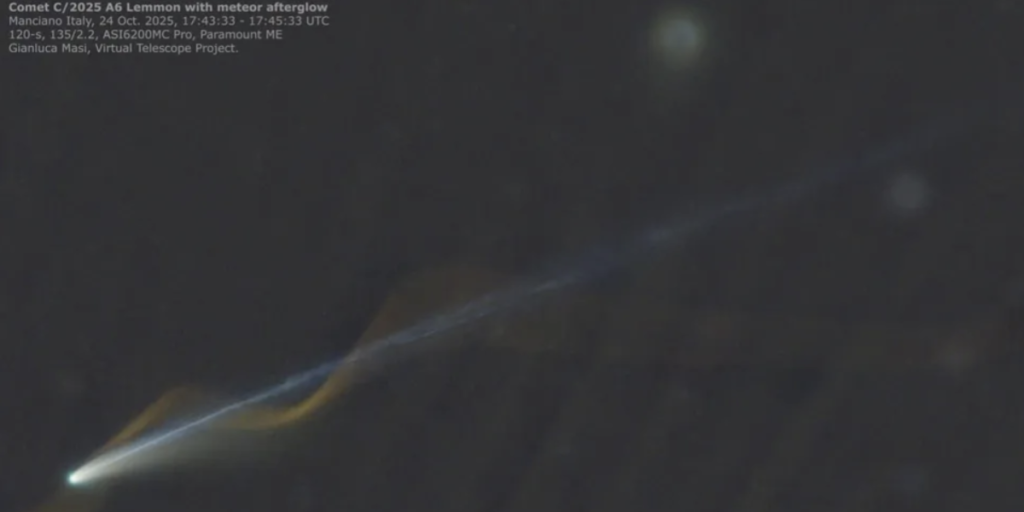An astronomer in Italy has captured a rare sight in the night sky.
Others are reading now
The image shows a bright comet appearing to twist together with the glowing trail of a meteor, a moment described as a coincidence of cosmic scale.
Fortunate alignment
Gianluca Masi, an astronomer and founder of the Virtual Telescope Project, filmed Comet C/2025 A6 Lemmon above the town of Manciano on October 24.
During his observation, a meteor streaked through the atmosphere, leaving behind a red trail that seemed to wrap around the comet’s blue tail.
“In this video, the meteor’s afterglow appears to coil around the comet’s ion tail, a pure perspective miracle,” Masi said. He explained that while the meteor burned close to Earth, the comet was about one hundred million kilometres away.
Brightest in the sky
Comet Lemmon, one of three active comets visible this month, came closest to Earth on October 21.
Also read
It has remained bright enough to be seen through small telescopes and binoculars.
The comet’s blue tail was formed from ionised gas pushed away by the solar wind.
For several minutes, the meteor’s trail appeared nearby. Winds at different altitudes sculpted the glowing line into a spiral shape.
Masi said the light came from a chemical reaction in the atmosphere when the meteor’s passage ionised oxygen molecules.
Rare meteor trails
Meteors travel at speeds exceeding one hundred thousand miles per hour.
Also read
Their glowing trails can stay visible for minutes, shifting as high-level winds move across the sky.
According to NASA, this can produce curved or twisted shapes similar to the one seen in Masi’s image.
Spiral meteor trails are unusual. Older studies from past decades estimated that less than one percent of meteors leave curved paths, though scientists believe this may be an underestimate due to past recording limitations.
Coincidence of timing
The event took place just after the peak of the Orionid meteor shower, which is linked to debris from Halley’s Comet.
The shower was most active on October 20 and 21, the same period when Comet Lemmon was at its brightest.
Also read
Although the meteor shower is now waning, it will continue until early November. Astronomers say that more striking night sky scenes remain possible.
You can watch a full video here
Sources: Live Science, The Virtual Telescope Project, NASA, Reuters, BBC


